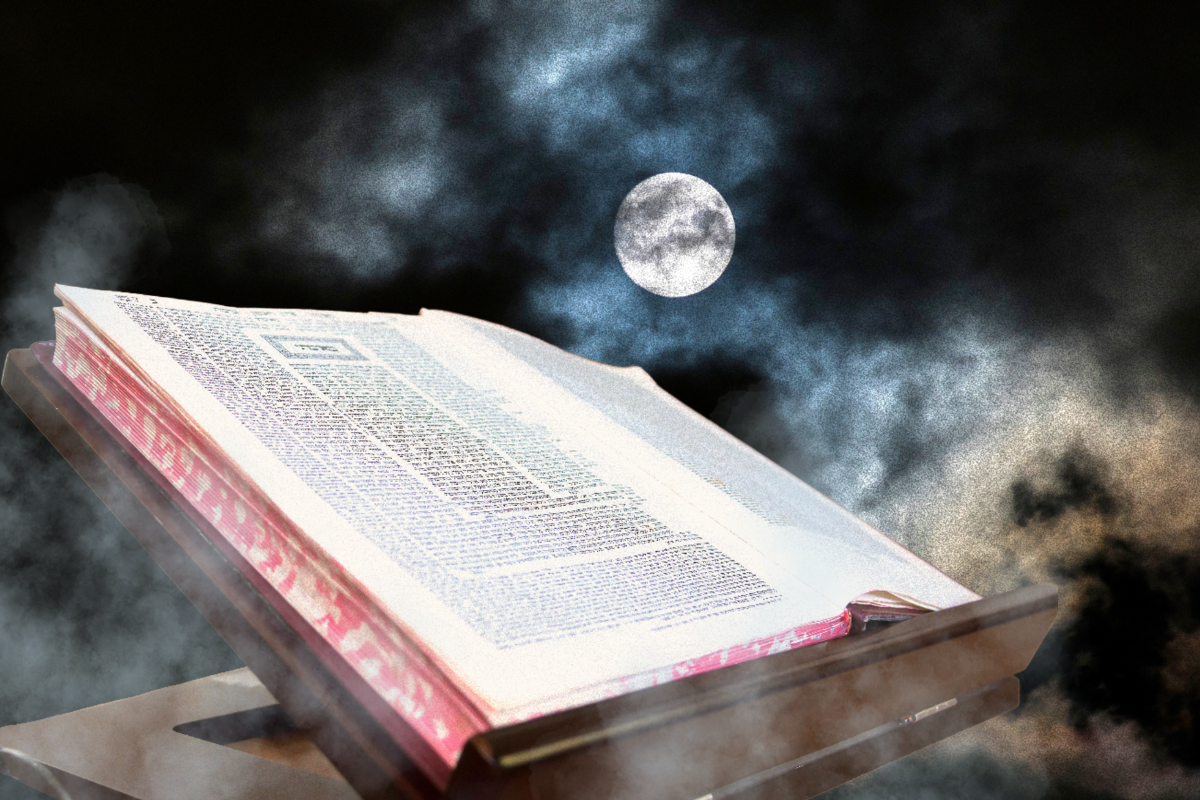The Talmud is a varied and winding document full of tangents. It has legal rulings, ethical debates, history and even ghost stories. Yes, it’s true: In Berakhot 18b, the Rabbis tell ghost stories to argue different points, trying to prove whether or not those who have died still know about what happens on Earth. Two of those stories feature the ghosts of young women.
The first story is about going into a cemetery late at night, not to get up to teenage antics with a Ouija board, but to get farming advice. There once was a man who gave money to the needy during a drought, to the displeasure of his wife. To avoid her “incessant mockery” he slept in the cemetery on the eve of Rosh Hashanah. That night in a dream he heard the ghosts of two young women talking to each other. One of the ghosts said, “My friend, let us roam the world and hear from behind the heavenly curtain what calamity will befall the world.” The other ghost replied, “I cannot, as I am buried in a mat of reeds, but you go and tell me what you hear.”
According to commentary by Yosef Hayyim, the mat of reeds prevented her body from decomposing quickly, which kept her soul connected to her body and stopped her from joining her friend roaming the world. The traditional linen shrouds used for Jewish burial are meant to help the physical body decay faster. It could be this girl came from a poor family and her mother could only afford to bury her in a mat of reeds. The commentary also says alternatively her mother might not have known she was buried in a mat of reeds: perhaps grave robbers took her linen shroud to use for witchcraft and tossed a mat of reeds down on top of her instead.
The first ghost went and did her roaming and when she returned she told her friend what she had learned. She said, “I heard that anyone who sows during the first rainy season of this year, hail will fall and strike his crops.” The man sleeping in the cemetery overheard this and decided to sow his seeds during the second rainy season. Crops all over the world were destroyed by hail, except for his.
The next year on the eve of Rosh Hashanah the same man decided to sleep in the cemetery again, without even getting into a fight with his wife. He heard the same two ghosts speaking to each other. One said, “Let us roam the world and hear from behind the heavenly curtain what calamity will befall the world.” The second said, “My friend, have I not already told you I cannot, as I am buried in a mat of reeds?” A fair response, even ghosts get testy when they have to keep reminding someone of a limitation, like dietary restrictions or being buried in a mat of reeds. She continued, “You go, and tell me what you hear.”
The first ghost went out and roamed and when she returned to the cemetery she told her friend, “I heard that those who sow during the second rainy season, blight will strike his crops.” The man made sure to sow his seeds during the first rainy season, and the rest of the world sowed during the second, so once again crops all over the world were destroyed except his. His wife noticed that something strange was going on and asked him, “Why is it that last year, the crops of the entire world were stricken and yours were not stricken, and now this year, the crops of the entire world were blighted and yours were not blighted?” He told her the whole story of how he was using ghost gossip as an almanac. A couple of days later she got into an argument with the mother of one of the ghosts. In a moment of anger, she lashed out at her and said, “Go and I will show you your daughter, she is buried in a mat of reeds.”
The next year the man slept in the cemetery again, hoping for more ghostly farming knowledge. He heard the same two ghosts speaking to each other. The first one said, “My friend, let us roam the world and hear from behind the heavenly curtain what calamity will befall the world.” But her friend replied, “My friend, leave me alone, as words that we have privately exchanged between us have already been heard among the living.”
Following this section, the Talmud tells another, shorter story featuring another ghost of a young woman. A man named Ze’iri gave his money to his innkeeper for safekeeping. One day while he was out and about, she died, and he didn’t know where she had put his money. He visited her grave and asked her where his dinars (an ancient coin) were. She told him to go and get them from beneath the hinge of a certain door. She also instructed him to ask her mother to send her comb and a tube of eyeshadow with a certain woman she knew was about to die and join her in the graveyard the following day!
Judaism is ambiguous about the afterlife, but these stories show that people have always been people, and at least in the Talmud, ghosts still retain much of the human spirit and many human desires, such as adventure, casual gossip about the weather and their favorite comb and eyeshadow.



